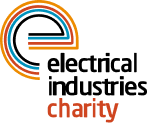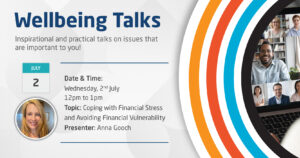News

Suicide Prevention is not just for September…..
September is National Suicide Prevention Month. With the month coming to an end, we should remind ourselves that suicide prevention doesn’t end with the observation. It is an ongoing effort that should be practiced every day of the year.
More than 720,000 people die by suicide every year. For each suicide, there are an estimated 20 suicide attempts.
Suicide can occur at any stage of life and in all regions of the world. In 2021, suicide was the third leading cause of death among 15–29-year-olds globally, and 73% of all suicides happened in low- and middle-income countries.
While the link between suicide and mental health conditions (in particular, depression and alcohol use disorders) and a previous suicide attempt is well established in high-income countries, many suicides happen impulsively in moments of crisis. Further risk factors for suicide include experience of loss, loneliness, discrimination, relationship dispute, financial problems, chronic pain and illness, violence, abuse, and conflict or other humanitarian emergencies.
Stigma around mental health conditions and suicide means many people thinking about suicide do not seek help. Suicides and suicide attempts have a ripple effect that impacts on families, friends, colleagues, communities and societies.
What can be done do to support someone who is in crisis?
We know how difficult conversations can be, especially when someone tells us they are experiencing suicidal thoughts or want to end their life.
Hearing ‘I am feeling suicidal’ can be just as scary for the listener as for the person voicing this.
It takes a lot of courage to tell someone that you are having thoughts of ending your life. It could be the first time this has ever been said out loud and for this reason, it is so important to remain calm and non-judgement if ever someone tells you how they are feeling.
You may not be a counsellor, but you can provide a safe space for that person to share and you have the power to signpost into support.
You may consider taking the following steps:
Let them know that you care about them and they aren’t alone.
Empathise with them. Be aware you don’t know exactly how they feel. You could say something like, ‘I can’t imagine how painful this is for you, but I would like to try to understand.’
Ask them if they have a plan for ending their life and if they say yes, ask them what they are planning. This information can be passed onto the relevant authority and will help to direct the support offered.
Make sure someone is with them if they’re in immediate danger.
Encourage and help them to get professional help.
Make sure you get support after and look after yourself.
If you are ever concerned that someone is in immediate danger of harming themselves or anyone else, call 999 and report your concerns.
What can the EIC do?
The EIC are very proud to offer an efficient and supportive service to our industry during times of adversity. We work on a short-term, high impact basis and look to ensure that our clients receive the support they need in order to achieve the best possible outcome.
When you contact the EIC, you can expect to be assigned a Case Manager, who will oversee your journey with us. We work with you to create a support plan, which may include mental health support sessions, reaching out to other professionals and organisations and ensuring that you have robust support in place.
The team are non-judgemental and empathetic, always offering a safe space and a listening ear if you are struggling.
Our helpline operates from 9am – 5pm and is monitored by the Welfare team. It is open to anyone within the electrical and energy sector for advice and guidance, as well as direct support from the EIC. You can also access support by emailing support@electricalcharity.org or accessing our online application, available on our website.
Please note: The EIC are not a crisis service and in the instance that crisis is identified, we will action the necessary steps to ensure that support is locally implemented.
Looking after Each Other – Looking after Ourselves
These topics are of the utmost importance when it comes to mental health. However far too often, we consider them to be opposing goals. People can be led to believe that self-care is selfish – or only achievable through shutting out the needs of others. Meanwhile people can also run themselves ragged trying to look after others while allowing their own mental health to deteriorate,
The simple fact is, we cannot look after others properly unless we are also looking after ourselves. This involves finding a balance between offering support and maintaining one’s boundaries. Finding this balance requires a lot of self-reflection and counselling is the best way to help people discover their inner strengths and resources.
Below is a list of resources where support can be found for both yourselves and others. They offer advice, a listening ear and referrals so you can seek the necessary support for all.
Get Support – The Mix
The Mix is the UK’s leading support service for young people. We are here to help you take on any challenge you’re facing – from mental health to money, from homelessness to finding a job, from break-ups to drugs. Talk to us via our online community, on social or our counselling service. Home – Mind
Mind offers help and support to those who need it most. There’s more than 100 local Minds across England and Wales, offering specialised support and care based on the needs of their communities. Family Action: Supporting families at every age and stage of life (family-action.org.uk)
Family Action is an award-winning national charity working from the heart of local communities across England and Wales. We’ve been supporting people through change, challenge and crisis for over 150 years. Mental Health Support Network provided by Chasing the Stigma | Hub of hope
The Hub of Hope is the UK’s leading mental health support database. It is provided by national mental health charity, Chasing the Stigma, and brings local, national, peer, community, charity, private and NHS mental health support and services together in one place for the first time. Homepage | Campaign Against Living Miserably (CALM) (thecalmzone.net)
CALM is the suicide prevention charity on a mission to help people end their misery, not their lives.
R;pple
R;pple is an interceptive tool designed to present a visual prompt when a person searches for harmful keywords or phrases relating to the topic of self-harm or suicide. These phrases include any words or terminology which have been identified as displaying potentially damaging online content. Our intervention technique catches people when they are most vulnerable and helps redirect them to immediate support sources.
https://www.ripplesuicideprevention.com/resources/support
SFA Lite
This short programme provides participants with the foundational knowledge needed to effectively intervene in situations where someone may be contemplating suicide.
Designed for individuals across various professions and community roles, this programme equips you with the tools to recognise the signs of suicide, initiate life-saving conversations, and connect a person having thoughts of suicide with appropriate resources. Whether you’re a healthcare professional, educator, HR personnel, or concerned community member, this programme empowers you to make a real difference.
Part 1: Understanding the Foundations of Suicide Prevention
- Introduction and Programme Overview: Gain a comprehensive understanding of the programme’s objectives and structure.
- Working with Societal Attitudes Toward Suicide: Explore how societal views impact individuals with thoughts of suicide, and shape prevention strategies.
- How Personal Values Influence Suicide Thoughts: Discover the link between an individual’s values and the development of suicide ideation.
- The Hidden Toll®: Understand the stigma surrounding suicide and the experiences of survivors who have been bereaved by suicide.
- The Ripple Effect®: Delve into how suicide affects not just the individual, but the wider community, creating a ripple of impact.
- Understanding Thoughts of Suicide and Suicide Behaviour: Learn about the various causes of thoughts of suicide and the differences between intention and outcome in suicide behaviour.
- Intention vs. Outcome of Behaviour®: Examine the critical distinctions between a person’s intentions and the outcomes of their actions.
- Exploring the Causes of Suicide Ideation: Gain insights into the complex and varied causes that can lead to suicide thoughts.
- ‘I’m Really Glad You Told Me’®: Watch a powerful short film featuring a real-life case study of someone who contemplated suicide and was persuaded to choose life.
Part 2: Practical Strategies for Suicide Intervention an Self-Care
- The Suicide Safety Guide: Learn the 3-Step Model designed to equip Suicide First Aiders® with essential skills.
- Step 1 – Recognising Suicide Feelings: Master the ability to identify when someone is thinking about suicide and ask the right, life-saving questions
- Step 2 – Exploring and Understanding Options: Develop skills to engage in meaningful conversations that explore the person’s options and offer hope.
- Step 3 – Helping the person with thoughts of suicide cope – Using an evidence-based approach to develop a suicide safety plan.
- Self-care for Suicide First Aiders® – Understand the importance of self-care and how to manage the emotional impact of working with those affected by suicide.
For more information visit their website: https://suicidefirstaid.uk/sfa-lite/

